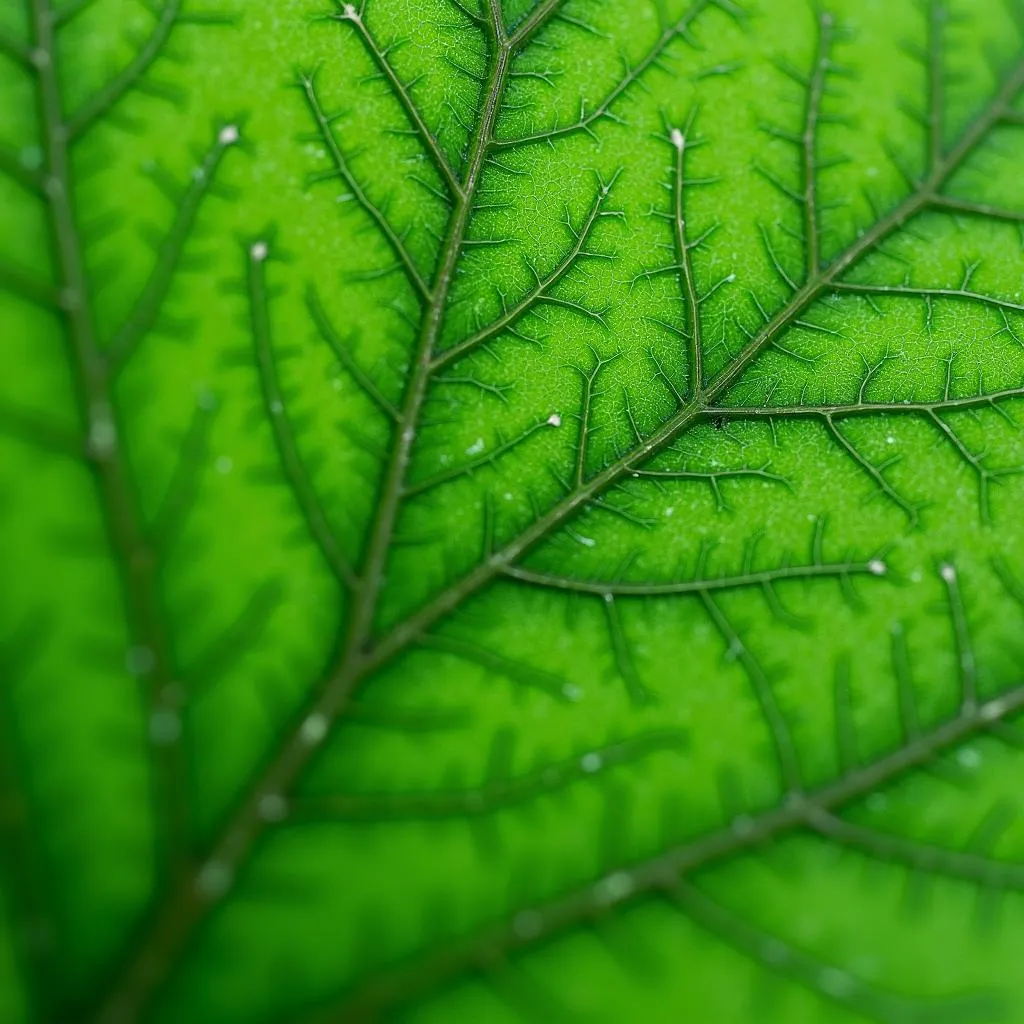Unveiling the Wonders of African Cucumber Leaves
African Cucumber Leaves, known scientifically as Cucumis anguria, are more than just a byproduct of the beloved cucumber fruit. These verdant, textured leaves are a culinary delight and a traditional remedy in many African cultures. Beyond their culinary uses, African cucumber leaves boast a wealth of nutrients and potential health benefits, making them a valuable ingredient worth exploring.
 Close-up of fresh African cucumber leaves showing their texture and vibrant green color.
Close-up of fresh African cucumber leaves showing their texture and vibrant green color.
A Culinary Journey with African Cucumber Leaves
Across the African continent, African cucumber leaves are incorporated into a diverse range of dishes, adding a unique flavor and texture that elevates traditional recipes. Their slightly bitter taste, reminiscent of spinach or kale, lends itself well to both cooked and raw preparations.
- Soups and Stews: In West Africa, these leaves are a common ingredient in hearty soups and stews, simmered with vegetables, meat, or fish to create a flavorful and nutritious broth.
- Salads and Sides: The leaves can be enjoyed fresh in salads, adding a crunchy texture and a burst of vitamins. They can also be steamed or sautéed as a side dish, seasoned with spices like garlic, ginger, and chili.
- Smoothies and Juices: For a healthy boost, African cucumber leaves can be blended into smoothies or juiced, providing a refreshing and nutrient-rich beverage.
A Treasure Trove of Nutrients
African cucumber leaves are a powerhouse of essential nutrients, including:
- Vitamins: Rich in vitamins A, C, and K, these leaves support healthy vision, boost immunity, and aid in blood clotting.
- Minerals: A good source of iron, calcium, and potassium, essential for maintaining bone health, regulating blood pressure, and supporting muscle function.
- Antioxidants: Packed with antioxidants that help protect the body from damage caused by free radicals.
Traditional Uses and Potential Health Benefits
In traditional African medicine, African cucumber leaves have been used for centuries to address a variety of ailments. While scientific research is ongoing, anecdotal evidence suggests potential benefits in:
- Digestive Health: The leaves are believed to have a soothing effect on the digestive system, easing indigestion and constipation.
- Skin Conditions: Topical applications of crushed leaves are used to soothe skin irritations and wounds.
- Blood Sugar Regulation: Some studies indicate that African cucumber leaves may help regulate blood sugar levels.
How to Prepare African Cucumber Leaves
Preparing African cucumber leaves is simple and straightforward. Here’s a quick guide:
- Washing: Thoroughly wash the leaves under running water to remove any dirt or debris.
- Removing Stalks: Pluck the leaves from the tough stalks, discarding the stalks.
- Cooking: The leaves can be used raw in salads or cooked by steaming, sautéing, or boiling.
Exploring the Versatility of African Cucumber Leaves
African cucumber leaves are a versatile ingredient that can be incorporated into a wide range of dishes, limited only by your imagination. Their unique flavor and nutritional profile make them a valuable addition to any diet.
Conclusion
African cucumber leaves are a testament to the rich culinary and medicinal traditions of the African continent. Beyond their culinary uses, these leaves offer a wealth of nutrients and potential health benefits. Embrace the opportunity to explore the unique flavor and versatility of African cucumber leaves, and discover a treasure trove of culinary and health-promoting possibilities.
FAQs
- What do African cucumber leaves taste like? They have a slightly bitter taste, similar to spinach or kale.
- Can I eat African cucumber leaves raw? Yes, they can be enjoyed raw in salads or cooked.
- What are the health benefits of African cucumber leaves? They are rich in vitamins, minerals, and antioxidants, and may aid in digestion and blood sugar regulation.
- How do I prepare African cucumber leaves for cooking? Wash them thoroughly, remove the stalks, and cook as desired.
- Where can I find African cucumber leaves? They are commonly found in African grocery stores or farmer’s markets.
For any further inquiries or assistance, please feel free to reach out to our team at +255768904061, or email us at kaka.mag@gmail.com. You can also visit us at our location in Mbarali DC Mawindi, Kangaga, Tanzania. Our customer service is available 24/7 to assist you.



